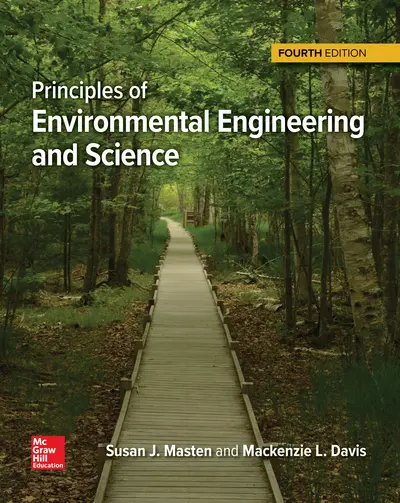Mackenzie Davis
Mackenzie L. Davis, Ph.D., P.E., BCEE, is an Emeritus Professor of Environmental Engineering at Michigan State University. He received all his degrees from the University of Illinois. From 1968 to 1971 he served as a Captain in the U.S. Army Medical Service Corps. During his military service he conducted air pollution surveys at Army ammunition plants. From 1971 to 1973 he was Branch Chief of the Environmental Engineering Branch at the U.S. Army Construction Engineering Research Laboratory. His responsibilities included supervision of research on air, noise, and water pollution control and solid waste management for Army facilities. In 1973 he joined the faculty at Michigan State University. He has taught and conducted research in the areas of air pollution control and hazardous waste management.
In 1987 and 1989–1992, under an intergovernmental personnel assignment with the Office of Solid Waste of the U.S. Environmental Protection Agency, Dr. Davis performed technology assessments of treatment methods used to demonstrate the regulatory requirements for the land disposal restrictions (“land ban”) promulgated under the Hazardous and Solid Waste Amendments.
Dr. Davis is a member of the following professional organizations: American Chemical Society, American Institute of Chemical Engineers, American Society for Engineering Education, American Meteorological Society, American Society of Civil Engineers, American Water Works Association, Air & Waste Management Association, Association of Environmental Engineering and Science Professors, and the Water Environment Federation.
His honors and awards include the State-of-the-Art Award from the ASCE, Chapter Honor Member of Chi Epsilon, Sigma Xi, election as a Fellow in the Air & Waste Management Association, and election as a Diplomate in the American Academy of Environmental Engineers with certification in hazardous waste management. He has received teaching awards from the American Society of Civil Engineers Student Chapter, Michigan State University College of Engineering, North Central Section of the American Society for Engineering Education, Great Lakes Region of Chi Epsilon, and the Amoco Corporation. In 1998, he received the Lyman A. Ripperton Award for distinguished achievement as an educator from the Air & Waste Management Association. In 2007, he was recognized as the Educational Professional of the Year by theMichigan Water Environment Association. He is a registered professional engineer in Michigan.
Dr. Davis is the author of a student and professional edition of Water and Wastewater Engineering and Co-author of Principles of Environmental Engineering with Dr. Susan Masten. In 2003, Dr. Davis retired from Michigan State University.
Susan Masten
Susan J. Masten is a Professor in the Department of Civil and Environmental Engineering at Michigan State University. She received her Ph.D. in environmental engineering from Harvard University in 1986. Before joining the faculty at Michigan State University in 1989, she worked for several years in environmental research at the University of Melbourne (Australia) and at the US Environmental Protection Agency’s Kerr Laboratory, in Ada, Oklahoma. Professor Masten’s research involves the use of chemical oxidants for the remediation of soils, water, and wastewater. Her research is presently focused on the use of ozone for reducing the concentration of disinfection by-products in drinking water, controlling fouling in membranes, and reducing the toxicity of ozonation by-products formed from the ozonation of polycyclic aromatic hydrocarbons and pesticides.
Dr. Masten is a member of the following professional organizations: American Water Works Association, Association of Environmental Engineering and Science Professors (AEESP), and American Chemical Society. She has served as the chair of the AEESP Publications Committee since 2013. Professor Masten was a Lilly Teaching Fellow during the 1994–1995 academic year. She is also the recipient of the Withrow Distinguished Scholar Award, College of Engineering, MSU, March 1995, and the Teacher-Scholar Award, Michigan State University, February 1996, and the Withrow Teaching Award in 2012 and 2018. Dr. Masten was also a member of the Faculty Writing Project, Michigan State University, May 1996. In 2001, she was awarded the Association of Environmental Engineering and Science Professors/Wiley Interscience Outstanding Educator Award, and in 2013, she was awarded the Lyman A. Ripperton Environmental Educator Award by the Air and Waste Management Association. Professor Masten was awarded an Erskine Fellowship in 2018 from the University of Canterbury, Christchurch, NZ. Dr. Masten is a registered professional engineer in the state of Michigan.

